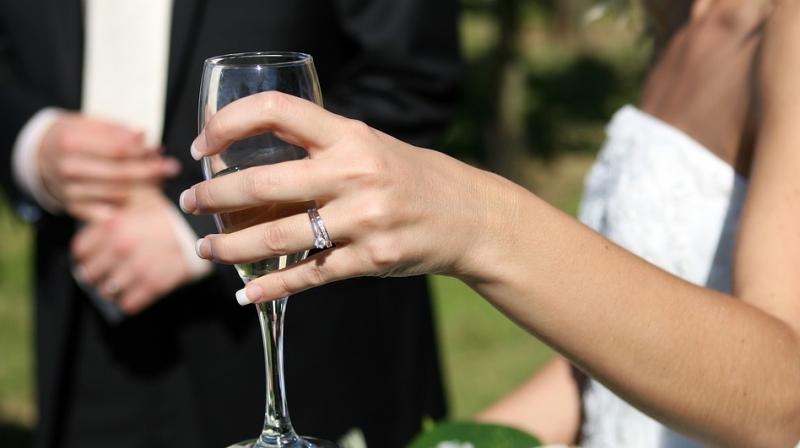On the contrary: Bride & Pejudice

An NRI friend of mine, Raja, was in town recently and a group of us caught up over a drink. Inevitably the conversation shifted to whether Indians are inclined to be prejudiced from the cradle upwards by birth and upbringing. Raja is married to a white South African, Lauren, who is in his words, “a true global citizen, without a single bigoted bone in her body.” This passed without demur but when he went on to scathingly refers to Indians as, “the most prejudiced bunch of a**holes, this side of the Suez”, the battle lines were drawn and the discussion raged hot and furious.
“Saala apartheidwali ko shadi karke humko lecture dene shuru kiya,” was the first salvo fired, followed by, “Yaar, tell us how many Indians were killed in the US after 9/11?” And finally, “NRI patriotism increases in direct proportion to distance from the Motherland — you are the exception.” One was tempted to intervene, but Raja was more than equal to the task. Calmly, logically and persuasively he made the case that the ugly burden of apartheid has not been passed on to the next generation. In contrast, Indian children subconsciously imbibe the age-old prejudices which have destroyed our national fabric: Hindu-Muslim, North vs South, East Indian-Goan, inter-caste, cross-border, fair-dark etc. He argued that young, white South Africans, revulsed by segregation and the misery and trauma it engenders, have comprehensively rejected the idea of white supremacy. He felt that most young people have moved on to an enlightened state where they are now able to discuss these prickly subjects with their black peers aicably.
He spoke of how his, educated-in-India son from his previous marriage, chanted “eenie, meenie, mina mo, catch a ---by his toe” on the subway in New York and how he worriedly shushed him, motivated by instincts of political correctness and not wanting to have the shit beaten out of him by any African American commuters. He contrasted this with how, once they were safely at home, Lauren calmed the frightened child by explaining the issue from a humane aspect as against a fearful, PC mindset.
But Raja has a problem: a big, ugly Mississippi Masala type of problem. For the benefit of those who are not Mira Nair fans, I should explain that her film was about Sarita Chowdhury wanting to marry Denzel Washington in the face of her father’s disapproval. Similarly Raja’s brother Sam wants to marry his girlfriend of six years: a Harvard-educated MBA who is talented, intelligent and charming. And black. Well not black, but an interesting shade of coffee, genetically ordained by her Jamaican father and American mother. Amma, when she was given the glad tidings of a monsoon wedding, threatened to commit suicide. Sam was at a “boy’s crossroads”: this way lay marital bliss, this way despair at Amma’s passing, albeit by her own hand. One wedding and a funeral: a painful choice for a dutiful son whose name wasn’t Hugh Grant.
Lauren, the child of apartheid, rode in to the rescue. As she explained to her bigoted mother-in-law, recent anthropological studies offer compelling evidence that the whole of humanity has evolved from Afrian roots. So it didn’t really matter if Jefferson had children with his slave mistress or if Nehru romanced Edwina. It all comes out in the wash and all of humanity, whether black, white, brown or yellow are inextricably linked by DNA. While Lauren used reason, Raja and his sister decided to cut off all links with Amma until she agreed to celebrate the wedding with the same enthusiasm if Sam’s fiancée had been a Tambrahm. Sam, by the by, is Swaminathan.
And so it came to pass that the young lady’s sterling qualities suitably impressed Amma to the extent that she was able to look beyond her copper skin tone and they all did the bhangra and ate fried chicken with dosa and lived happily ever after. Now if only we could replicate that nationwide, we’d be able to lose our lousy, riots ‘r us, global image.

